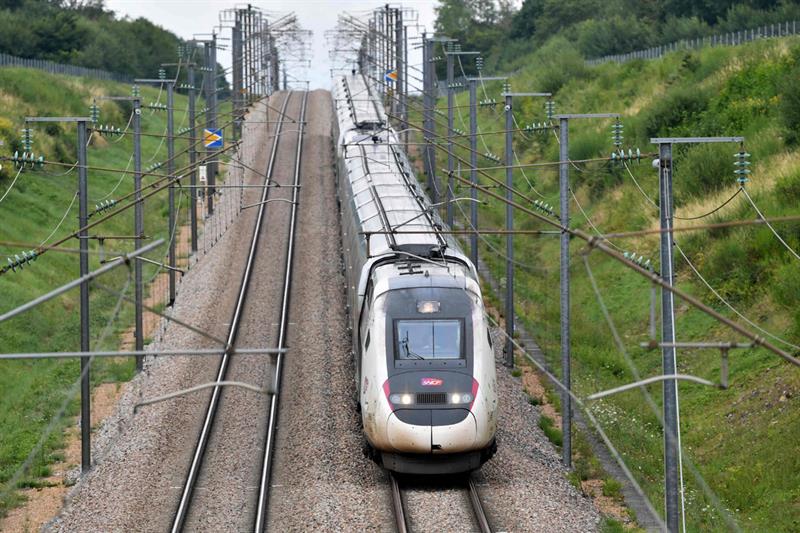In a race against time, French national railway company SNCF has made significant progress in restoring high-speed train services following acts of sabotage that disrupted three major lines just hours before the Olympic Games opening ceremony in Paris. The incident has raised serious security concerns as the French capital hosts one of the world’s largest sporting events.

SNCF reported on Saturday that its teams worked tirelessly through the night, battling adverse weather conditions, to improve TGV (Train à Grande Vitesse) traffic from the north, east, and west to Paris. As of Saturday morning, normal service had been fully restored on the Eastern high-speed line, providing some relief to travelers and Olympic spectators.
However, challenges persist on other routes. SNCF stated, “On the North, Brittany and South-West high-speed lines, seven out of 10 trains on average will run with delays of one to two hours.” This partial restoration of services represents a significant improvement from the complete disruption experienced in the wake of the sabotage acts.

The company has outlined its ongoing efforts to minimize inconvenience to passengers. Traffic on the Northern axis is expected to remain disrupted on Sunday, but SNCF anticipates improved conditions on the Atlantic axis for weekend return journeys. In a bid to keep travelers informed, the railway operator is proactively contacting customers via text message and email to confirm the status of their trains.
Despite these challenges, SNCF has reassured the public and Olympic organizers that all transportation for Olympic teams and accredited personnel will proceed as planned. This commitment underscores the priority given to ensuring the smooth operation of the Games, even in the face of unexpected obstacles.
The sabotage incidents have cast a shadow over the Olympic festivities and prompted heightened security concerns. French authorities have launched active investigations into the matter, but as of now, no suspects have been identified or apprehended. This lack of progress in identifying the perpetrators has added to the unease surrounding the event’s security measures.

The timing of the sabotage, occurring just before the grand opening ceremony on the Seine River, has been particularly troubling. It has highlighted the vulnerability of critical infrastructure and the potential for disruption to major events like the Olympics.
As Paris continues to host the Games, local authorities and Olympic organizers are likely to maintain heightened vigilance. The incident serves as a stark reminder of the complex security challenges facing large-scale international events in today’s world.
The swift response by SNCF and its partial restoration of services demonstrate the resilience of France’s transportation network. However, the incident has undoubtedly added an extra layer of complexity to the already challenging task of managing the logistics for the Olympic Games.
As the situation continues to evolve, travelers are advised to stay informed about their train schedules and to follow updates from SNCF. The coming days will be crucial in fully restoring normal service and ensuring that the transportation disruptions do not overshadow the sporting achievements and international camaraderie that the Olympics represent.
The Associated Press



